Menu

Project Objective: Increasing the use of plastics and indifference to their proper disposal poses a serious threat to the environment. It is very important to collect used plastic items, process the collected plastic and make new items (recycling). For this, in collaboration with Cummins India Foundation and Pune Municipal Corporation, we have initiated a plastic collection campaign in Pune city.
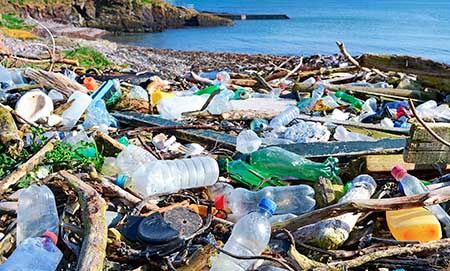
Plastic is a low-cost item and easy to use, easy to handle. No area, space or house where plastic is not used can be found today. But the uncontrolled use of plastics has created many new crises in the last few decades. These crises threaten land, rivers, air, and even land and sea life. If the problem caused by plastics is not addressed as early as possible, human, animal, birds’ existence will be threatened in a few years. Unfortunately, ordinary citizens are ignorant about this.
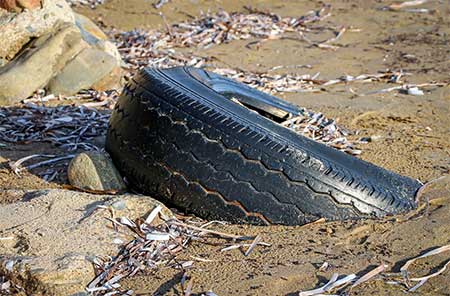
What are the problems caused by plastic?
Plastic does not decompose quickly in the cycle of nature. It takes an average of 450 years for an open plastic object to decompose. It takes 500 to 750 years for a discarded plastic water bottle to decompose, and 2,000 years for a vehicle tire to decompose. What you don’t realize is that a water bottle or a carry bag that you simply throw away will stay in the ground or the water for hundreds of years. Many hazardous chemicals are used to make plastics. The main problem with plastics is that it takes hundreds of years for them to decompose and it’s the ability to contaminate land and water until they decompose.
Adverse effects of plastic on humans
When plastics, thermocol come in contact with land and water, they release a chemical called ‘Bisphenol A’. Due to the depletion of this element deep in the soil, the soil becomes barren, and even in the crops grown in that soil, these toxic particles continue to accumulate for years. Well, water is also being polluted as these toxic, chemical elements remain in the soil for hundreds of years. The Center for Disease Control has conducted a study in this regard. About 95% of the people they examined had bisphenol A levels in their bodies. This is leading to an increase in the incidence of chronic diseases such as cancer, heart disease, as well as congenital malformations and reproductive problems in humans.
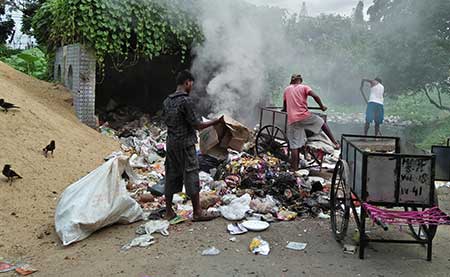
Adverse effects of plastic on the air
Plastic waste is widely burned in villages. Petroleum products and many chemical elements are used to make plastics. When plastic burns, it releases many harmful gases, mixes with the air and causes a large amount of air pollution. It causes chronic respiratory diseases in humans. It also causes diseases like high blood pressure and cancer.
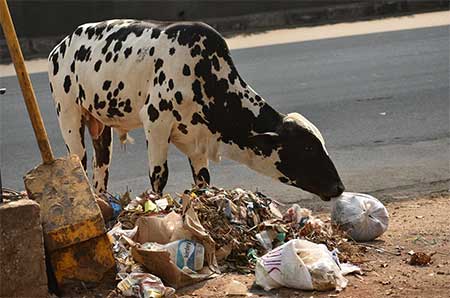
Adverse effects of plastic on animals
Today, plastic dishes, bowls, and glasses are widely used in meals in cities and towns. The leftover food from the house is packed in a real plastic carry bag and thrown on the coals. Animals eat large quantities of these plastics and due to indigestion, gas formation, they die. This is especially in the case of stray animals.
Adverse effects of plastic on aquatic life
Plastic thrown on the ground is carried away with rainwater. This plastic gets stuck in the gutters and drains that carry sewage. Every year in metropolitan cities like Mumbai and Pune, waterlogging is a problem. It has been found that plastic items thrown away by the citizens are the main reason for this. Eventually, this water gets into the river along with the plastic, these rivers get to the sea which means the plastic is finally carried to the sea. Even though we have been using plastics extensively for the last few decades, today there is so much plastic accumulated in the oceans that it has formed floating islands. They are having a detrimental effect on aquatic life. Sea creatures eat plastic, eat food, and die. The plastic that has gone inside with the water is getting stuck in their body. As a result, much aquatic life is being harmed. Very fine particles of plastic are stored in aquatic organs. Eating fish in such waters is also affecting human beings. The amount of plastic waste stored in the sea is so ancient that if this plastic is spread on the ground, it will form a five feet high layer all over India.
In a nutshell, plastics are polluting our land, water, food and even air, and this is increasing. This is having a direct impact on us and future generations.
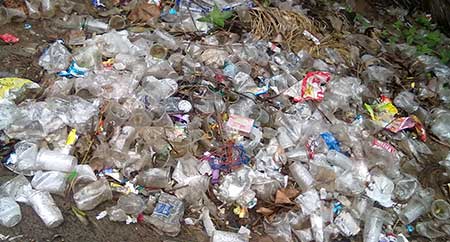
Unrestricted use of plastic is extremely destructive to the environment and all living things. The answer to this problem is to minimize the use of plastics, to use disposable plastic items for a long time, and to collect and reuse used plastics without throwing them away.
Meetings with housing societies
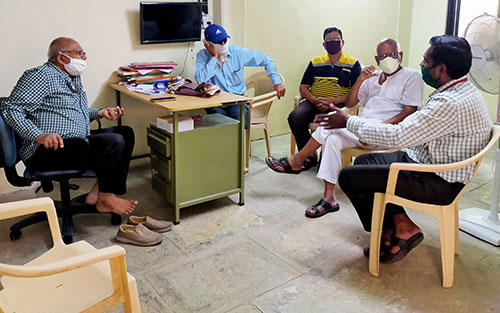
Awareness drives in housing societies
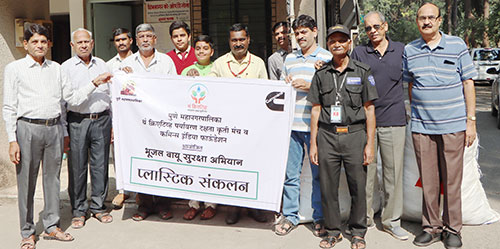
Awareness drives in housing societies
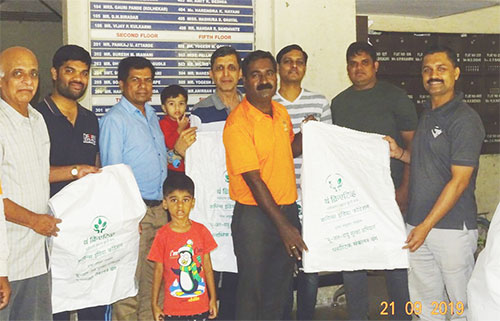
Awareness drives in housing societies
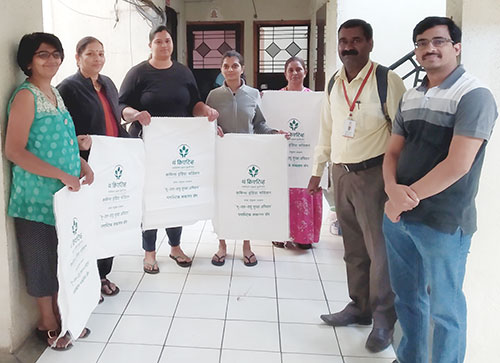
Plastic waste collection drive

Sending for recycling
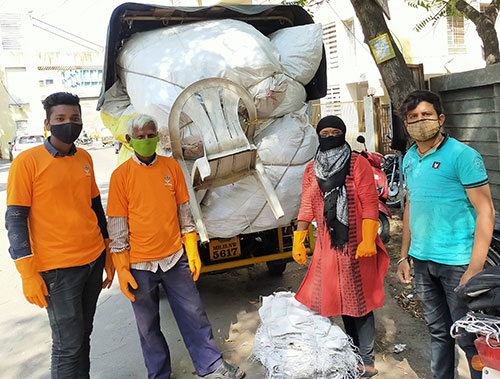
Sending for recycling
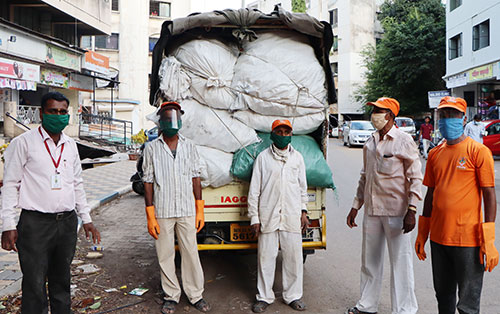
Sending for recycling
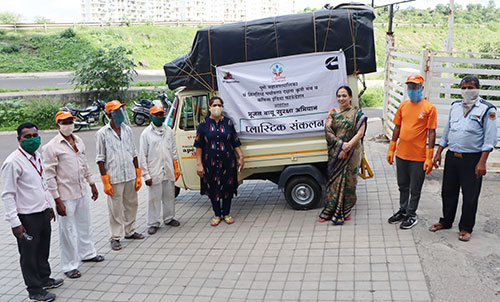
Sending for recycling
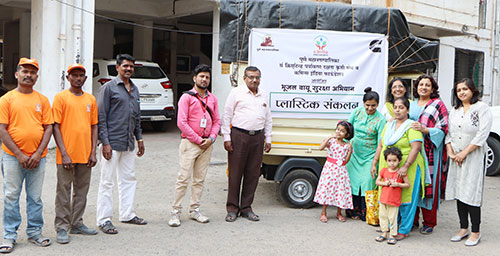
We collect used, disposable plastic items and forward them for recycling.
Copyright 2022 | Thum Creative Paryavaran Dakshata Kruti Manch | Website designed by Digital Canvas